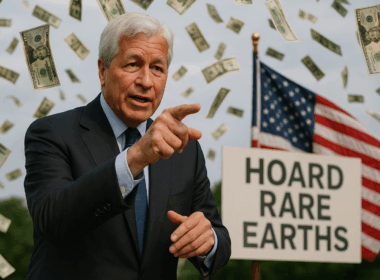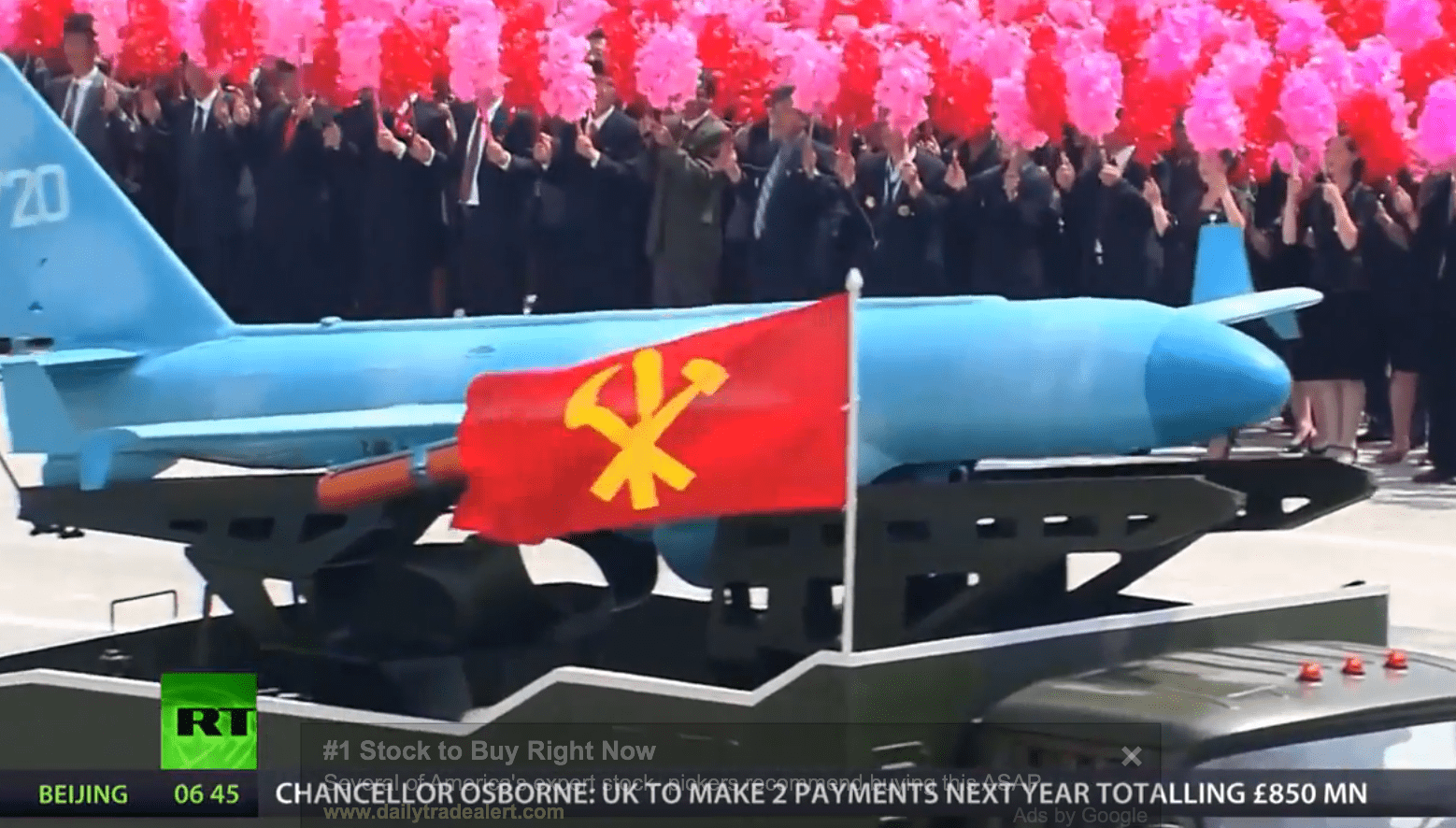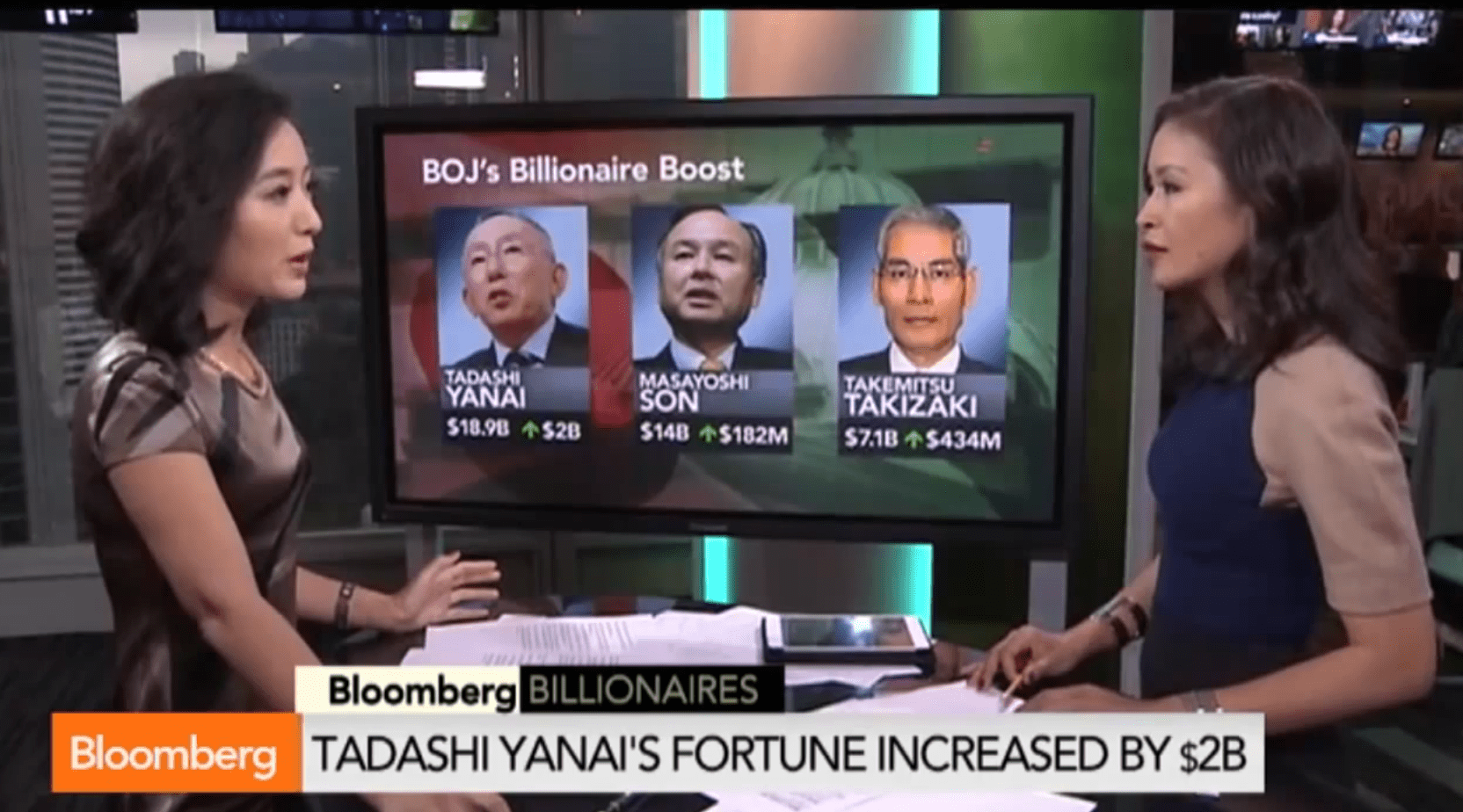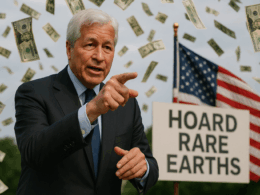As nations are further engulfed in financial leverage and drawn into energy wars, prominent members of both communities continue to mysteriously die.
Just a few weeks ago, Thierry Leyne, the French-Israeli entrepreneur who last year started an investment firm with former International Monetary Fund Managing Director Dominique Strauss-Kahn, jumped to his death at the age of 49.
And just in case you’re new to the Equedia Letter, Leyne’s death now adds yet another count of mysterious death of a financial executive this year…all of whom either mostly committed suicide, or died from unknown causes.
Here are just some:
- William Broeksmit, a 58-year-old former senior executive at Deutsche Bank AG, was found dead in his home after an apparent suicide.
- Gabriel Magee, a 39-year-old JP Morgan employee, died after falling from the roof of the JP Morgan European headquarters.
- Mike Dueker, a 50-year-old chief economist of a US investment bank was found dead close to the Tacoma Narrows Bridge in Washington State.
- Tim Dickenson, a U.K.-based communications director at Swiss Re AG, died of unknown causes.
- Ryan Henry Crane, a 37-year-old equities trading executive at JP Morgan died in an apparent suicide.
- Li Junjie, a 33-year-old banker in Hong Kong jumped to his death from the JP Morgan HQ.
- James Stuart Jr, a Former National Bank of Commerce CEO, was found dead in Scottsdale, Ariz., the morning of Feb. 19. Cause of death unknown.
- Edmund Reilly, a 47-year-old trader at Midtown’s Vertical Group, died by jumping in front of a speeding train.
- Kenneth Bellando, a 28-year-old a trader at Levy Capital, formerly investment banking analyst at JP Morgan, jumped to his death from his 6th floor East Side apartment.
- Jan Peter Schmittmann, a 57-year-oldformer ABN Amro Netherlands Chief Executive Officer apparently committed suicide after killing his wife and one of his daughters. There were no witnesses.
- Li Jianhua, a 49-year-old director of China’s Banking Regulatory Commission died of a sudden heart attack.
- Julian Knott, a 45-year-old executive director of JP Morgan Chase & Co.’s global technology network apparently killed his wife and then himself with a shotgun in Jefferson Township, New Jersey.
But wait, there’s more. There’s always more.
As you know from my past letters, the energy war between Russia and the U.S. rages on, with many other nations getting caught in the crossfire.
A few weeks ago, Christophe de Margerie the CEO of France’s largest oil company, Total, died.
His death occurred just hours after a high-level discussion with Russian Prime Minister Dmitri Medvedev to discuss foreign investment in Russia.
Via IB Times:
“Yet the controversial magnate’s demise, only hours after engaging in high-level talks with Russian Prime Minister Dmitri Medvedev to discuss foreign investment in Russia, has prompted a flurry of speculation online that his death was far from accidental.
The lawyer of Vladimir Martynenko, the plough driver, yesterday (21 October) described accusations that his client was drunk as “groundless” and implied that he was being set-up.”
Was Vladimir Martynenko drunk? Not according to his lawyer.
Via RT:
“Russian prosecutors claim the driver of the snowplow which crashed with Total CEO Christophe de Margerie’s jet was drunk. His lawyer, however, says he was completely sober, due to a heart condition preventing him from drinking.
“My client is suffering from an acute heart condition; he does not drink at all and his relatives and friends can testify to that,” Aleksandr Karabanov, the lawyer, said.
“He was sober at the time of the crash,” he also said, adding that a number of lawyers will be involved in Martynenkov’s defense. “We don’t want the blame for the accident to fall on an ordinary man,” he added.
Karabanov also made clear that he would insist on an independent expertise to determine the presence of alcohol in his client’s bloodstream.”
Was Margerie’s death a freak accident, or is there more to his death than meets the eye?
Let’s take a look at how his death has spurred many assassination conspiracy theories straight out of a John Grisham novel.
Keep in mind that I am merely providing factual clues as to why the conspiracy theories are swirling.
France Under Heavy Fire
In one of my July Letters, “Nations Unite: The BRICS Development Bank,” I wrote about how France’s support of Russia has been met with negative consequences:
“By now you’ve likely heard about the record $8.9 billion fine against BNP Paribas, France’s largest bank and one of the largest banks in the world, for working with countries subject to US sanctions.
This was a severe punishment aimed at sending a clear message to other financial institutions around the world that decide to engage with countries sanctioned by the U.S.
In particular, it was likely a direct threat to the French for selling Mistral-class warships to Russia – even after the United States told them not to.
In a few months, France will be handing Russia keys to one of the world’s most advanced warships, at a time when the battle over energy corridors between the U.S. and Russia has never been greater.
…In short, the presence of a Mistral-class assault ship in the Black Sea would represent an incredible stronghold of the region by Russia – giving it distinct advantage over the West and a Western-controlled Ukraine.
That’s why Russian President Vladimir Putin has accused the United States of blackmailing France by timely fining BNP Paribas a record $8.9 billion, over the French contract to sell Mistral-class warships to Russia.
Via Washington Post:
“We know about the pressure which our U.S. partners are applying on France not to supply the Mistrals to Russia,” Putin told Russian diplomats Tuesday. “And we even know they hinted that if the French don’t deliver the Mistrals, they would quietly get rid of the sanctions against the bank, or at least minimize them.
“What is that if not blackmail?” Putin said.”
Shortly after my letter, France announced that it has suspended delivery of the first of two Mistral helicopter carrier ships to Russia.
It seems France got the point: Don’t f**k with the U.S.
In that same letter, I also wrote about how Margerie, Total’s CEO, has been very blatant in voicing his negativity over U.S. sanctions on Russia, even stating that there’s ways to bypass the sanctions by using alternative currencies to the dollar:
“Christophe de Margerie, head of French oil company Total SA (FP), said yesterday that he sees no reason for oil purchases to be made in dollars, adding that it makes sense to expand the use of other currencies in transactions outside the U.S.
“Nothing prevents anyone from paying for oil in euros,” de Margerie said in Aix-en-Provence. “The price of a barrel of oil is quoted in dollars. A refinery can take that price and using the euro-dollar exchange rate on any given day, agree to make the payment in euros.”
…In Layman’s term: Stop bullying us with your laws, or we will find ways to do business without you.”
As I have mentioned before, currency is the heart of a nation.
It’s no surprise then that any attack on the dollar, or petrodollar, via the support of Russia, will be met by the full force of the United States.
But could the U.S., as the conspiracy theorists suggest, really be responsible for the death of Total’s most recent CEO, Christophe de Margerie?
And if so, could Margerie’s comments in support of Russia be the primary reason for his death?
Or is there more?
The Total and Russian Relationship
Total is already one of the biggest foreign investors in Russia, but it wants to be bigger.
Under the former leadership of Christophe de Margerie, Total announced plans to double its oil output from Russia by 2020.
Via Reuters:
“France’s Total expects the biggest share of its oil and gas output to come from Russia by 2020 and plans to stay there for the long haul despite recent tensions with the West over Ukraine, a top executive said.
Total executives said they expected its production in Russia to soar to 400,000 barrels of oil equivalent per day (boe/d) by around 2020, almost doubling from 207,000 boe/d last year, thanks to its partnership with Russia’s Novatek and their giant Yamal LNG project in Siberia.”
If you recall from my Letter, “Will America Save Europe?“, the United States wants to overthrow Russia’s control of gas supplies to Europe, while bringing desperately needed revenue by selling LNG to Europe.
However, the U.S. is at a major cost disadvantage to Russia.
From my letter, China and Russia Strike Massive Blow to America:
“…LNG can’t (yet) be shipped from America to Europe cheap enough for Europe to wean itself from Russian gas supply. Russian gas supplies are estimated to be 40% cheaper than LNG from America.
So unless Russia decides to raise prices by 35 to 40 percent, it’s not economic for Europe to buy gas from America – not unless America can find a way to reduce costs.
Even if America is capable of reducing costs, it can still easily be undercut by Russia’s cheaper pipeline gas.”
In short, Total’s ambitions in Russia will not only make it much more difficult for the United States to accomplish its LNG aspirations, but its recent investment expansion in Russia is a direct slap in the face to the U.S. sanctions imposed on Russia.
The Slap in the Face: The Yamal LNG Project
Despite Western-imposed sanctions on Russia that prohibit western financing and technology transfer to some of Russia’s energy projects, Total is continuing to pursue a $27 billion natural gas project in Yamal.
The Yamal LNG project is a joint venture with Russia’s Novatek (60%), China’s CNPC (20%) and Total (20%), all funded by using non-U.S. funds.
That means the Yamal project is being funded internationally without using the dollar.
The project ensures production and marketing of the Russian Arctic’s vast natural gas reserves and involves the construction of a major new maritime route for transporting liquefied natural gas to – you guessed it – Europe and Asia.
The construction of the Yamal LNG project will make it even easier for Russia to undercut U.S. LNG sales to Europe.
Simply put, Total’s foreign investment in Russia is creating major roadblocks for the U.S.
Is it coincidence that Margerie’s death occurred just hours after a high-level discussion with Russian Prime Minister Dmitri Medvedev to discuss more foreign investment in Russia?
Do you think still think Margerie’s death was a freak accident, or do you believe that Western-powers were involved?
CLICK HERE to share your thoughts.
Russia has responded swiftly to both the U.S. sanctions and Margerie’s death by announcing that nothing will derail the Yamal project or Russia’s energy dominance.
Via Moscow Times:
“Chinese banks are prepared to invest more than $10 billion in Russia’s giant Yamal liquefied natural gas project, billionaire Gennady Timchenko, a shareholder in independent gas producer Novatek, told news agency RIA Novosti on Friday.
The project has come under pressure this year since Novatek, Russia’s largest independent gas producer and the driving force behind Yamal LNG, appeared on the list of companies sanctioned by the United States and European Union over Russia’s role in the Ukraine crisis.
…Russia has significantly upped its energy cooperation with China this year amid fraught political relations with the West, most notably through the signing of a landmark 30-year, $400-billion gas deal that will see Russia deliver 39 billion cubic meters of gas annually to China through the Power of Siberia pipeline, now under construction.
Located on the Arctic peninsula of the same name, the Yamal LNG plant is slated to produce 16.5 million tons of liquefied natural gas a year with production to begin in 2018. Investment in the project has been estimated at $27 billion.”
If Margerie’s death wasn’t an accident, then Russia’s response to his death is another direct slap in the face to whoever is responsible.
“Russian President Vladimir Putin has backed an idea to name a tanker operating at Yamal LNG project after Total CEO Christophe de Margerie who died in the air crash.
Chairman of Russia’s second largest gas producer Novatek board chairman Leonid Mikhelson has put forward this initiative to the head of state. He informed the president at a working meeting late on Thursday evening about the progress in Yamal LNG project which is being implemented jointly with China’s energy giant CNPC and France’s energy major Total.
“I would like to say that we have lost a perfect partner, Christophe de Margerie. We decided to make this initiative, asked his family to name a tanker which will deliver the produce after him,” Mikhelson said.
“We have started this project together with him. I believe that this decision would be correct. He was a person enjoying high respect in the world,” the Novatek head noted.”
Remember, there are always two sides to the story.
Thus far, I have only heard of conspiracy theories supporting western-involvement in his death.
But what if, instead, Russian influences were responsible for Christophe de Margerie’s death? Could the high-level talks in Russia just before his death have involved discussions of Margerie’s intention to leave the Yamal Project?
We’ll never know…
CLICK HERE to Share Your Thoughts
Currency Wars Continued
Last week, I talked about Japan’s unsurprising stimulus announcement and its effects on China:
“With the addition of Japan’s newly announced stimulus, you can bet the Asian currency market will feel substantial shocks and create serious tensions between countries such as China and Korea.
…Japan is now at the epicentre of a currency maelstrom, thanks to its recent stimulus.
On Friday, the yen plunged to a near seven-year low against the US dollar, putting it on track for its worst day in 18 months.
This currency devaluation will undoubtedly send shocks in the Asian market, potentially leading to a more tumultuous replay of the 1997-1998 Asian financial crisis.
China is already facing both a credit and liquidity crunch, with foreign direct investments into the country already turning negative.
China will feel the effects of Japan’s currency devaluation and it will take action.”
Actually, it already has…
China Takes Action
The support of China’s currency and its role in world trade continues to grow stronger.
According to Bloomberg:
“Some countries are already using the Chinese Yuan in their foreign-currency reserves without announcing it publicly,” central bank governor Zhou Xiaochuan said.
…Nigeria and Belarus are two countries that already use the Yuan in their foreign-currency reserves. Zhou today said some developed countries are using the Yuan, without specifying.
The People’s Bank of China signed a 10-billion-yuan ($1.63 billion) currency-swap agreement with its Sri Lanka counterpart last month during a visit to Colombo by Chinese President Xi Jinping. The Chinese monetary authority last month granted Sri Lanka’s central bank a license to invest in China’s domestic interbank bond market.
China has set up bilateral currency swap lines with more than 20 countries and regions since 2009, including Switzerland, Brazil, Hong Kong, Indonesia and South Korea, the Xinhua News Agency reported in July.”
Last week, long time U.S. economic ally South Korea announced that it has replaced many of its dollars for the Yuan in its foreign reserve holdings, doubling its holdings of Yuan in the last year.
It also announced last month that the Industrial and Commercial Bank of China (ICBC), China’s largest bank, plans to sell Renminbi-denominated bonds in South Korea.
In Singapore, one of Asia’s primary financial hubs, China announced direct trading between the Renminbi and the Singapore dollar, marking another step toward internationalizing the Chinese currency, further removing the dependence of the U.S. dollar, and protecting itself against Japan’s currency manipulation.
Via CNTV:
“According to the arrangement, China’s interbank foreign exchange market will kick off direct trading between the Yuan and the Singapore dollar via spot, forward and swap contracts.
With direct trading of their currencies, China and Singapore will be less dependent on the U.S. dollar to settle bilateral trade and investment deals.
Previously, the exchange rate between the two currencies was calculated based on the Yuan-U.S. dollar central parity rate and the Singapore dollar-U.S. dollar rate.
Now that the two currencies can be directly traded, the Yuan-Singapore dollar rate will be set based on the average prices offered by market makers before the opening of the interbank foreign exchange market.”
In Europe, direct trade with China using the Yuan and Euro as compatible currencies has already begun.
Via Bloomberg:
“China will start direct trading between the Yuan and the euro tomorrow as the world’s second-largest economy seeks to spur global use of its currency.
…The euro will become the sixth major currency to be exchangeable directly for Yuan in Shanghai, joining the U.S., Australian and New Zealand dollars, the British pound and the Japanese yen.
The Yuan ranked seventh for global payments in August and more than one-third of the world’s financial institutions have used it for transfers to China and Hong Kong, the Society for Worldwide International Financial Telecommunications said last week.”
From a financial intervention standpoint, China has already made major strides.
But what about energy?
How will China compete against the petrodollar?
Attacking the Petrodollar
A few months ago, Russia announced that it would begin selling oil in both Rubles and the Yuan, further penetrating the petrodollar system.
Shortly after that announcement, Russian and Chinese central banks signed an agreement on Yuan-Ruble swaps.
Via Bloomberg:
“The Russian and Chinese central banks signed an agreement on Yuan-ruble swaps to double trade with its biggest partner.
The three-year swap deal is worth 150 billion Yuan ($24.5 billion) and is one of 38 accords spanning energy, technology and finance concluded at a meeting in Moscow of delegations overseen by Prime Minister Dmitry Medvedev and China’s Premier Li Keqiang.
…Russia, whose energy and financial industries are facing sanctions from the U.S. and European Union, is trying to diversify funding sources and move away from dollar-dominated international settlements.
The Yuan overtook the euro in December to become the most used currency in global trade finance after the dollar, HSBC said in a report March 26.”
Since that agreement was signed, the trading of the Ruble and the Yuan have already reached record levels according to the Moscow Times.
But China didn’t stop there.
Just a few weeks after the deal with energy power house Russia, China signed yet another one with Qatar, the world’s largest LNG producer:
Via Forbes:
“Two weeks after signing a currency swap deal with Russia, China is back at it again, this time with the rich Persian Gulf nation Qatar.
The People’s Bank of China announced Monday that it signed the deal worth 35 billion Yuan (about $5.7 billion) with the central bank of Qatar.”
China has now signed currency swap deals with two major financial hubs – Europe and Singapore – and has now signed two massive deals with two of the biggest gas giants in the world, Russia and Qatar.
If China keeps this up, how much longer will the petrodollar maintain its dominance?
Even Argentina, a country that has been controlled by the IMF and World Bank, is now turning to China by activating their currency swap deal announced earlier this year.
Via WSJ:
“Argentina’s central bank tapped a currency swap line with its Chinese counterpart for the first time Thursday, requesting the equivalent of about $814 million at a time when its hard currency reserves are under pressure.”
But that’s not all.
If you think foreign nations are the only countries in discussions with China on the use of the Renminbi, think again.
It’s happening right here in Canada.
“(Canada’s) Prime Minister Stephen Harper will make a long flight Wednesday for a quick visit to China where he hopes to seal a deal that could help boost exports and jobs back home.
…The big deal Canada is expected to close is an agreement with China that its currency, the Renminbi, can be traded in Toronto. China tightly controls how and where its currency is traded. Canadian firms now have to exchange loonies into U.S. dollars and then change that into China’s currency. A trading hub could help Canadian exporters and importers drastically cut costs.”
If the U.S.’ closest partner and friendly neighbor is looking to bypass the dollar in international trade, whose next?
Until Next Time,
Ivan Lo
The Equedia Lettr













Unfortunately what we are seeing now is the result of decades of corruption and bought politicians. All of the recent wars the USA have started, including the destabilization of foreign nations, is not about securing oil supplies as the politicians would have us think. It is a last ditch effort or Hail Mary long shot to protect the dollar.
I’ll go out on a limb to say, in 6 months to a year the dollar will no longer be the reserve currency. The new reserve currency will probably be the Rimniby?
The culprits are; the one percenters who control most of the worlds wealth, the Central Bankers, the Investment Bankers, the Federal Reserve, the Military Industrial Complex, Big Business, and of course the Politicians who willing participate while the tax payers are being financially raped!
There is an easy solution, but it may be too late for the USA to implement it.
Oil and the dollar are intertwined. Unfortunately, when the dollar does go, the guys behind the central bank that run the world will simply move onto the next.
Having been on the planet for 53 years, all of them as a US citizen, I find it hard to blame most countries for being tired of our crap. We talk the talk, but we don’t walk the walk. When 60% of our population controls less than 5% of the total wealth, when most US citizens have no faith in their government, why should anyone else?
The nations of the world cannot be blamed for their effort to protect the nation’s wealth and attempting to shore up a globally unstable economic arena. If the United States would have been financially responsible in the approach to restart a dead economy that is still without doubt about 50% percent dead then we would not have such a debt that can never be repaid in full. The economy is a total sham due to the government’s intrusion into the market place many, many years ago and has steadily increased to the point that there is not a free market place to attempt to operate a sound financial monetary system that the nations of the world are willing to trust at this point in time. The United States house of finances are without doubt beyond repair. Nations have begun to try to hedge against the eventual total devastation of the United State of America’s monetary system(scheme)thereby destruction of the existing economic activity in this nation for a period of unknown time or anyone’s ability to determine or even put forth an educated speculation of recovery. Recovery may never occur to a degree of any meaningful participation in the world economy for this nation. Nations will always employ their money where the least risk is present and the best return is possible. One could say the United States politicians are the blame for our financial ills, but the operation of the political system is to blame. The politicians seek re-election must pay forward rewards to their constituents for their votes. This is a plague that is embedded in the system and operates to spend monies that should never have been spent. Then we have “big Brother'” spending due to an idea that will be better for the people of the nation or the world. These are just two of the main areas of expenditures, but most certainly are a great percentage of our ever continuing deficit and non-stop borrowing to support an artificial standard of living. As soon as the designation as the country of ” Reserve Currency,” is lost and this will come before the total fold up, the people of this nation will have an unreal reality to face. The major mistake that was made in this country was made by President Richard Nixon and that was the uncoupling of the dollar from the corresponding amount of gold. I would like to know that tonight I could liquidate all of my paper assets and real assets, exchange it for gold and silver, some strong currency and leave the U.S. with what I own and find a safe haven to ride out the probable unending storm in my life time.
Unfortunately until we have more details about when these “suicides” occurred we cannot ascribe a sinister random process is responsible. Who has not heard of the Law of Poisson?
The Russian drunk snow plow operator’s responsibility in the death of Total’s boss is rather bizarre? As the song goes “Strange things are happening…”
uh…if you read it correctly, the deaths all happened this year. and if you actually did more research, you will also see the exact dates of when these suicides occurred.
I think the Canadian decision to trade directly with China , bypassing the U.S.$ , stands as the most noteworthy yet. I would have thought that based on our relationship with them , in so many ways , we would be the last ones to do something like this . The dollar amount is just north of 1B$ but the symbolism is enormous; and unless this is just a pressure tactic to get some movement on XL, I can’t see the powers that be taking this lightly .
Seems to me that certain people have seen the writing on the wall, sort of to speak. The world sometimes feels that America owes them a living, But one has to look at what is happing to the world around us. As for the oil crunch, Here in America, a Texas based oil Co., has struck oil in one of the riches holes, enough oil with Billions of gals of oil. Enough oil that we don’t have to depend on other countrys oil. No one will proable ever come to the conclusion of what or why certain people took there lives or their familys lives. The only thing I will do is pray for all of the souls that took there own lives or others, And ask the Lord to watch over the remaining few.
This is my 2nd note. After reading everyones comment, it is easier to see what might have happened. It could be that these poor souls backed all of the credit to our elected President, and he took advantage of everyone. He’s not sorry for it either. For he hates America, as we have found out and his last 2 years he will try his damest into making America a solicist Country. And he may make it, but when this country first started, it had one thing that took care of it and helped to make it a great country. This country relizes on GOD our savior. The United States of America is GODS Country and will alway be. Thru thick and thin come hell and high water this country has always come thur it and alway will. For this is Gods country.
Let’s be clear on one thing. The US is in a downward spiral, you can only borrow so much money to prop up your illusion of dominance. Most everything you have as a country is owned by someone else. The time for back back is coming.
And one other thing. God has no horse in this race.
Russia, being Russia has very possibly killed this oil magnate, blamed the U.S. because of U.S. sanctions against Russia, will name a ship after this man and make themselves look like the good guy taking some of the media pressure off of them over the Ukraine invasion. Really, what they do with their oil and gas and the type of money used to purchase it is really up to them and the purchasing country. If I wanted to buy something from them in Euros, Francs, Pesos or whatever currency I chose, then that is my option.
As I read those absurd comments from above, it reminds me of the bloggers on CNN. Very few come from independent thinkers but from paid propagandists instead who peddle the anti American line. Poor idddiots, keep talking.
There are three sides to every story, your side, my side, and the truth.
Trulife Distribution – Nutrition Distribution helps our clients achieve success in a complex, competitive retail environment. Our team of nutrition industry experts takes care of everything from importation compliance to marketing, sales and distribution at the ground level. There is no need to navigate the complicated intricacies of the American market when we have already done the work. Let us use our experience to expand your brand and put your product into the hands of American consumers. https://trulifedist.com/
Trulife Distribution – Nutrition Distribution helps our clients achieve success in a complex, competitive retail environment. Our team of nutrition industry experts takes care of everything from importation compliance to marketing, sales and distribution at the ground level. There is no need to navigate the complicated intricacies of the American market when we have already done the work. Let us use our experience to expand your brand and put your product into the hands of American consumers. https://trulifedist.com/